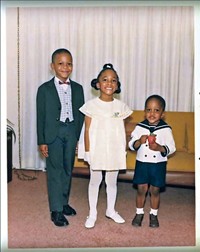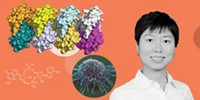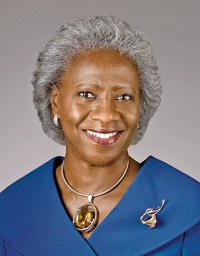Advertisement
Grab your lab coat. Let's get started
Welcome!
Welcome!
Create an account below to get 6 C&EN articles per month, receive newsletters and more - all free.
It seems this is your first time logging in online. Please enter the following information to continue.
As an ACS member you automatically get access to this site. All we need is few more details to create your reading experience.
Not you? Sign in with a different account.
Not you? Sign in with a different account.
ERROR 1
ERROR 1
ERROR 2
ERROR 2
ERROR 2
ERROR 2
ERROR 2
Password and Confirm password must match.
If you have an ACS member number, please enter it here so we can link this account to your membership. (optional)
ERROR 2
ACS values your privacy. By submitting your information, you are gaining access to C&EN and subscribing to our weekly newsletter. We use the information you provide to make your reading experience better, and we will never sell your data to third party members.
Nontraditional Careers
Career Ladder
Career Ladder: Karrera Djoko
A passion for the chemical basis of life turned an eager learner into a doctor of copper
by Gina Vitale
February 28, 2021
| A version of this story appeared in
Volume 99, Issue 7

1990s
Strength in numbers
Karrera Djoko (top) was 12 years old when her life was uprooted. To avoid racial unrest in Indonesia, her family relocated to Singapore. Among the many adjustments of moving to a new country, Djoko’s classes were now taught in English. Because she was still learning the new language, she was drawn toward the subjects that were based more on numbers. “Life kind of steered me towards math and science,” she says. Her parents, both civil engineers, had always emphasized the importance of those fields, so it seemed a natural fit.
2001
“Something clicked”
In college at Pennsylvania State University, Djoko eagerly bounced between interests in biology, math, and engineering. It wasn’t until she landed in a materials chemistry lab—a little by accident—that she really found her niche. Instead of a biology lab, she was placed with a group trying to re-create synthetic cells by encapsulating polymers in lipid membranes. She loved it enough to switch her major to chemistry. In her last semester, she enrolled in a biochemistry class to learn more about the chemistry of what makes life possible. “Something clicked in my head. I just went, ‘Ding ding ding ding! This is what I want to do.’ ”

2005
Biochem down under
A newly graduated Djoko, wanted to attend graduate school near her sister, who had moved to Australia. While researching schools she came across Tony Wedd at the University of Melbourne, who was studying the properties of proteins that help bacteria survive high, toxic levels of copper. “That lab taught me everything I knew about proteins,” she says. She loved working with metals, and she was fascinated by their effects on the immune system. After earning her PhD, she started a postdoc at the University of Queensland studying the roles of metals in infection; she stayed there until 2017.
Today
The copper doctor

When starting her postdoc, Djoko wasn’t necessarily looking to have her own lab—she just wanted to keep doing the lab work she’d fallen in love with. “I didn’t have a 5-year plan or anything like that,” she says. But when a tenure-track position opened up in 2017 at Durham University in the UK, it was a perfect match. Her research team looks at how bacteria regulate their need for metals—making sure they have enough to survive but not enough to be toxic—and what happens when they can’t properly regulate that intake. The metal they focus on the most is still copper, hence Djoko’s Twitter handle, @thecopperdoctor. Having benefited from the mentorship of other leaders, she’s now a mentor to biochemists hoping to find their niches—and she wouldn’t have it any other way. “They’re always unsure at the start,” she says. “I was like that—I was unsure at the start. But somebody gave me a shot.”
Sign up for C&EN's must-read weekly newsletter





Join the conversation
Contact the reporter
Submit a Letter to the Editor for publication
Engage with us on Twitter